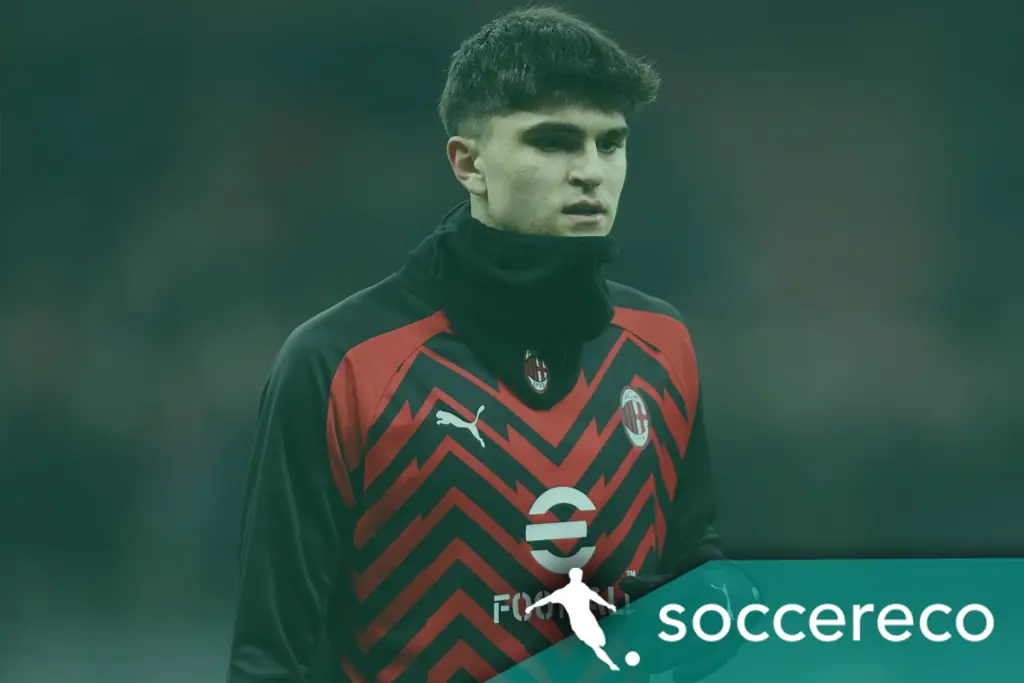Luis de la Fuente, the coach of Spain's national team, looked ahead to the upcoming international break in an interview with the Spanish broadcaster SER and expressed his surprise about his current contract situation.

Luis de la Fuente, the head coach of Spain’s national football team, made headlines during his recent appearance on the Spanish radio show El Larguero.
The coach, who led Spain to the European Championship title just a few months ago, shared his thoughts on a variety of important topics, including his surprising contract situation, the increasingly demanding football calendar, and the upcoming international break.
During the interview, De la Fuente expressed his frustration with his current contract, which has not been updated since his time managing Spain’s Under-21 team. Despite leading the senior team to major success, he remains under the same terms as before, something he finds particularly unusual. “It’s not normal for a European champion to be without a proper contract,” De la Fuente stated, adding, “I’ve received an offer, but at the moment, I’m still working under the same conditions as when I was transferred. It would have been fair if I had already signed the contract.”
This situation reflects a larger issue that can sometimes arise in international football, where the recognition and rewards for a coach’s success don’t always align with their accomplishments. De la Fuente’s leadership has been critical in Spain’s resurgence on the international stage, and his role in developing young talent at the Under-21 level has helped strengthen the national team. Yet, despite this, his contractual situation lags behind what would typically be expected for a coach of his caliber.
The Impact of a Crowded Football Calendar
In addition to his contract, De la Fuente discussed the growing issue of football’s increasingly packed schedule. Players have recently voiced concerns about the physical and mental toll that the intense match schedule is taking on them. High-profile stars like Rodri and Aymeric Laporte have been outspoken about the challenges of balancing club and international football in the face of a congested calendar. De la Fuente didn’t shy away from addressing the issue, agreeing that the demands placed on players are unprecedented.
“From July to March, we play six matches in eight months. The issue isn’t those six games, but the 70 that come before them,” De la Fuente explained, referring to the heavy load of matches players have to endure with their clubs before even factoring in international duty. This results in players being fatigued by the time they join the national team, which can negatively impact their performance and increase the risk of injury.
He further noted that the situation also affects national coaches, who are caught in the middle. “The national coaches are not to blame, but they are also victims of the situation,” De la Fuente said. He believes the responsibility for the crowded schedule lies with the higher authorities in football, including governing bodies like UEFA and FIFA, as well as the clubs, who are all trying to fit as many matches as possible into a tight window.
De la Fuente also addressed the possibility of a player strike in response to the exhausting schedule. “I hope the players don’t decide to strike,” he said. Instead, he emphasized the importance of dialogue between all the relevant stakeholders. “All the stakeholders need to sit at the table when creating the calendar: UEFA, FIFA, clubs, and players. That’s the only way to reach an agreement.” His call for unity reflects his belief that only through cooperation can the football community find a solution that protects the health and well-being of players while also maintaining the sport’s competitive balance.
Challenges in the Upcoming International Break
Looking ahead to the upcoming international break, De la Fuente faces the challenge of managing a squad without two of his key players: Dani Carvajal and Rodri. Both players are crucial to Spain’s recent successes, and their absence presents a significant challenge. “Rodri and Carvajal are irreplaceable because they are the best in their positions,” De la Fuente acknowledged. Rodri, the commanding midfielder for Manchester City, has been a vital cog in Spain’s engine room, controlling the tempo and dictating play. Meanwhile, Carvajal, one of the most experienced and reliable right-backs in world football, has been a cornerstone of Spain’s defense for years.
Their absence will force De la Fuente to rely on other members of his squad to step up. Fortunately, Spain is blessed with depth, and the coach remains confident that the team can cope. One player who will undoubtedly take center stage is the young sensation Lamine Yamal, whose rapid rise has made him one of the most exciting prospects in world football. Despite his youth, De la Fuente has full faith in the Barcelona starlet. “Even if you tie his feet, he still performs well. Players like him effortlessly do the unthinkable,” the coach said, underscoring Yamal’s extraordinary talent and his ability to produce magic on the field.
The Importance of the Nations League
Spain’s matches against Denmark and Serbia in the upcoming Nations League fixtures will be crucial, as the team continues to build momentum under De la Fuente’s leadership. The Nations League, although a relatively new competition, has quickly gained importance in European football, offering teams another route to international glory. For Spain, it represents an opportunity to maintain their status as one of the continent’s top sides and to further integrate young talents like Yamal into the senior squad.
Despite the challenges posed by injuries and a grueling calendar, De la Fuente remains optimistic. He sees the Nations League as an important stepping stone toward future success, both in upcoming tournaments and in the long-term development of the national team. His belief in the squad’s depth and the promise of emerging talents gives him confidence that Spain can continue to compete at the highest level, even when key players are unavailable.
A Coach Balancing Success and Uncertainty
As Luis de la Fuente navigates the complexities of leading Spain’s national team, he finds himself balancing the weight of recent triumphs with the uncertainty surrounding his own position. While his current contract situation remains unresolved, his commitment to the team and his vision for the future are clear. De la Fuente’s leadership has been instrumental in revitalizing Spain’s footballing identity, and his ability to manage both experienced stars and exciting young players has made him a key figure in the team’s continued success.
Ultimately, his hope is that the issues surrounding his contract, the crowded football calendar, and player welfare can be addressed through constructive dialogue and cooperation. As Spain prepares for the upcoming Nations League matches, all eyes will be on De la Fuente and his squad, as they look to add another chapter to their storied footballing legacy.
Updated: 12:12, 9 Oct 2024








